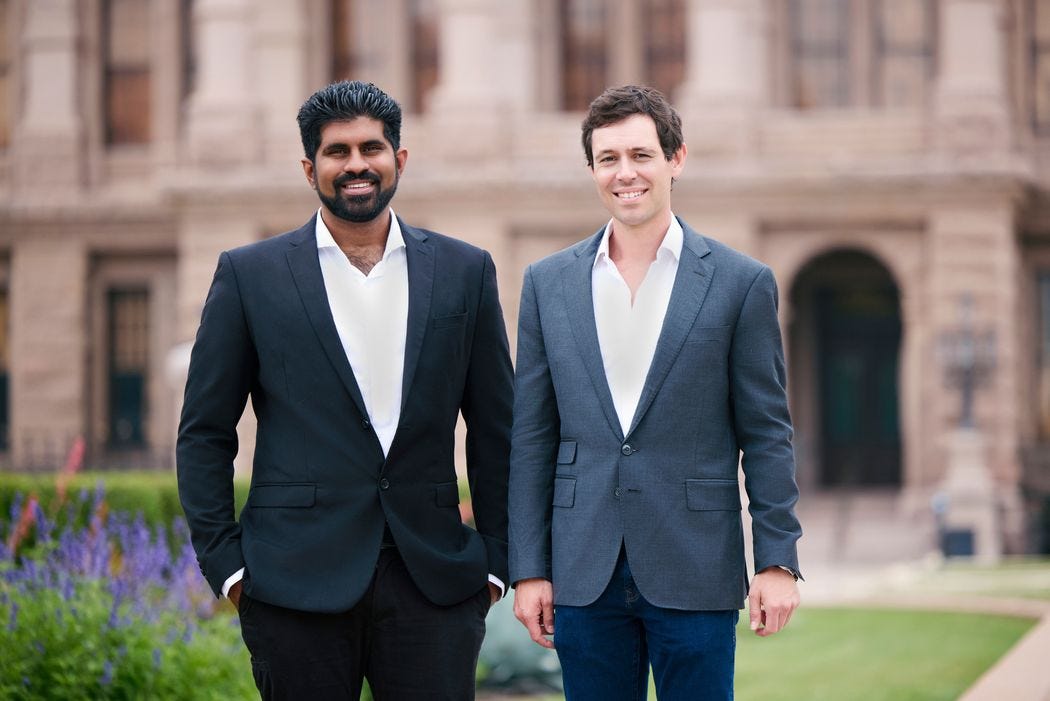Weekly Groundings are published every Friday to highlight the most interesting news, links, and writing I investigated during the past week. They are designed to ground your thinking in the midst of media overload and contribute to Handful of Earth’s broader framework. Please subscribe if you’d like to receive these posts directly in your inbox.
“Donald Trump Finds a Sympathetic Crowd in New York’s Harlem Neighbourhood”
The Financial Times reports on Donald Trump’s recent campaign visit to Harlem: “It turns out that many in the spiritual home of Black New York — albeit, a neighbourhood increasingly populated by Latinos and Middle Eastern immigrants — were at least sympathetic to Trump, if not outright supporters. Several expressed discontent with the economy and immigration, as well as a fondness for a New York icon who — while born rich — had somehow made himself a symbol of outsider hustle and grit.”
Opposition to illegal immigration (often expressed by recent immigrants) was a common thread in the interviews: “Julie Puello, 30, a self-described Democrat who moved to New York five years ago from the Dominican Republic, also had a visible distaste for Trump’s combative personality. Still, Puello understood his appeal to many in the neighbourhood. Even recent arrivals like herself were unhappy with a surge of immigration and the perceived benefits that newcomers were receiving at their expense.” Another Harlem resident, Maad Ahmed, had “fled the war in Yemen with his wife and two sons…He was dismayed, he said, when Trump issued an executive order banning incoming travellers from six Muslim nations, including his native Yemen, soon after taking office in 2017. But he now appreciated the former president’s campaign against illegal immigration.”
“Immigration and the Klan in Russellville, Alabama”
On the topic of immigration in a very different American context,
writes about a 2006 anti-immigration rally in Russellville, Alabama for Gasoline and Grits. Russellville is a town of “about ten thousand people [that] is ‘Big Chicken’ territory, part of a rural South dominated by poultry plants in the same way Detroit used to be by auto.” The 2006 rally “heard calls to ‘Let’s Get Rid of the Mexicans!’ and ‘Send Them Back!’ Interestingly, the Imperial Wizard warned the crowd that they want to take all the jobs and they want everyone out of America: ‘And I’m talking about blacks and whites, they want you out of here because they want this as their land’ – probably the first time a Klansman has appealed to blacks to join with whites in common struggle.”Price continues: “Since 2006, the Klan presence has been muted. As far as I know, there haven’t been any anti-immigration rallies since a small one in 2016 in Russellville and a Klan-organized anti-George Floyd protest at the Courthouse in 2020 only attracted four Klansmen and a larger counter-protest. But the Klan in North Alabama, like elsewhere in the Deep South, can be likened to a microbial spore, nestled deep underground just waiting for the right conditions to thrive.”
“Here Come the Anti-Woke AIs”
The Wall Street Journal reports on the rise of “anti-woke AIs” developed in response to the political bias exhibited by many of the major AI companies and their products. One such AI, called Kindroid, creates “AI girlfriends that share your values….Starting with an AI that has none of the guardrails or limitations on content that are typical of big, consumer-facing AIs, [which] is important because it allows users maximum flexibility in defining the personality of their virtual companion...”
Another product, called FreedomGPT, has “no filters on its output.” The developers pride themselves on their AI model’s ability to combat the wokeism of mainstream models like Open AI’s ChatGPT. These anti-woke AI companies have no problem with AI technology itself, but only its woke bias. This is yet another reason to be skeptical of the broader politics of anti-woke influencers, whom I subjected to criticism in yesterday’s article, “In Defense of Woke Zoomers.”
On a lighter (?) note, it’s hard for me to tell from this image whether or not the co-founders of FreedomGPT are themselves AIs:
“China’s Alternative Order”
At Foreign Affairs, Elizabeth Economy provides a useful summary of China’s efforts to reshape the global order: “China’s vision is designed to be compelling for nearly all countries. Those that are not democracies will have their choices validated. Those that are democracies but not major powers will gain a greater voice in the international system and a bigger share of the benefits of globalization. Even the major democratic powers can reflect on whether the current system is adequate for meeting today’s challenges or whether China has something better to offer. Observers in the United States and elsewhere may roll their eyes at the grandiose phrasing, but they do so at their peril: dissatisfaction with the current international order has created a global audience more amenable to China’s proposals than might have existed not long ago.”
Economy continues: “China’s wins within bigger organizations—such as the UN—may seem minor, but they are accumulating, giving Beijing substantial authority inside major institutions that many emerging and middle-income economies value. And Beijing has a formidable operational strategy for achieving its desired transformation, along with the capability to coordinate policy at multiple levels of government over a long period.” She goes on to argue that the United States needs to model its own “vision of technologically advanced change” based on China’s strategy, suggesting a fundamental coherence in the two superpowers’ plans for a technocratic future.
“Privatising Thames Water”
Michael Pryke breaks down the technicalities of the privatization of Themes River water in England for The Open University’s OpenLearn: “The acquisition by the investment consortium of Thames Water in 2006 saw the establishment of a holding company structure, what is often termed a ‘wedding cake’ of ownership. This included Thames Water Utilities Limited, near the bottom, a chain of three companies above it, and then a nondescript company called Kemble Water Holdings Limited near the top. And above all this, are the owners: the investment consortium of shareholders. Of course, the sector has a government regulator – the Water Services Regulation Authority (OFWAT) - but OFWAT only regulates Thames Water Utilities Limited, a small part of the whole corporate structure…Thames Water Utilities Limited is effectively ‘ring fenced’ for regulatory purposes: what goes on within the ring fence is of concern to OFWAT; what goes on outside is not.”
On the important topic of “ring-fencing,” Pryke writes that “The regulatory frame for the newly privatised water companies did not effectively equip the regulators with the means to monitor and intervene in the financial practices put to work in financialising Thames Water; the regulatory body, OFWAT, was effectively hemmed in by a regulatory ring fence too tightly drawn.”
“Abundance, Capitalism and Climate Change”
meditates on the relationship between economic growth and technological change at . He argues that material abundance is impossible under capitalism due to its demand for incessant technological progress: “Our needs increase in step with technological progress but the technological progress cannot at all points in time satisfy the needs of everybody. Abundance defined as full satisfaction of all material needs cannot be achieved in technologically advancing societies.”Milanovic continues: “To reach a society of abundance requires that we accept absence of technological progress or economic stationarity. The question then becomes whether capitalist society can ever be stationary. Schumpeter thought that imagining capitalism as a stationary society is a contradiction in terms. Capitalism can exist only if profits, on average, are positive. No capitalist or entrepreneur would invest if they cannot expect a net return, no more than a worker would work for a zero wage. If profits are positive they will be used for investment; investments will generate growth, and that very growth will create new products, which in turn will create new needs and make the society of abundance impossible. This then means that the stationary society that is compatible with full satisfaction of all human needs cannot be capitalist. Capitalism, by definition, means limitless change and limitless progress. With the society of limitless change and limitless progress we cannot have abundance.”
What grounded your thinking this week? Feel free to share in the comments.



